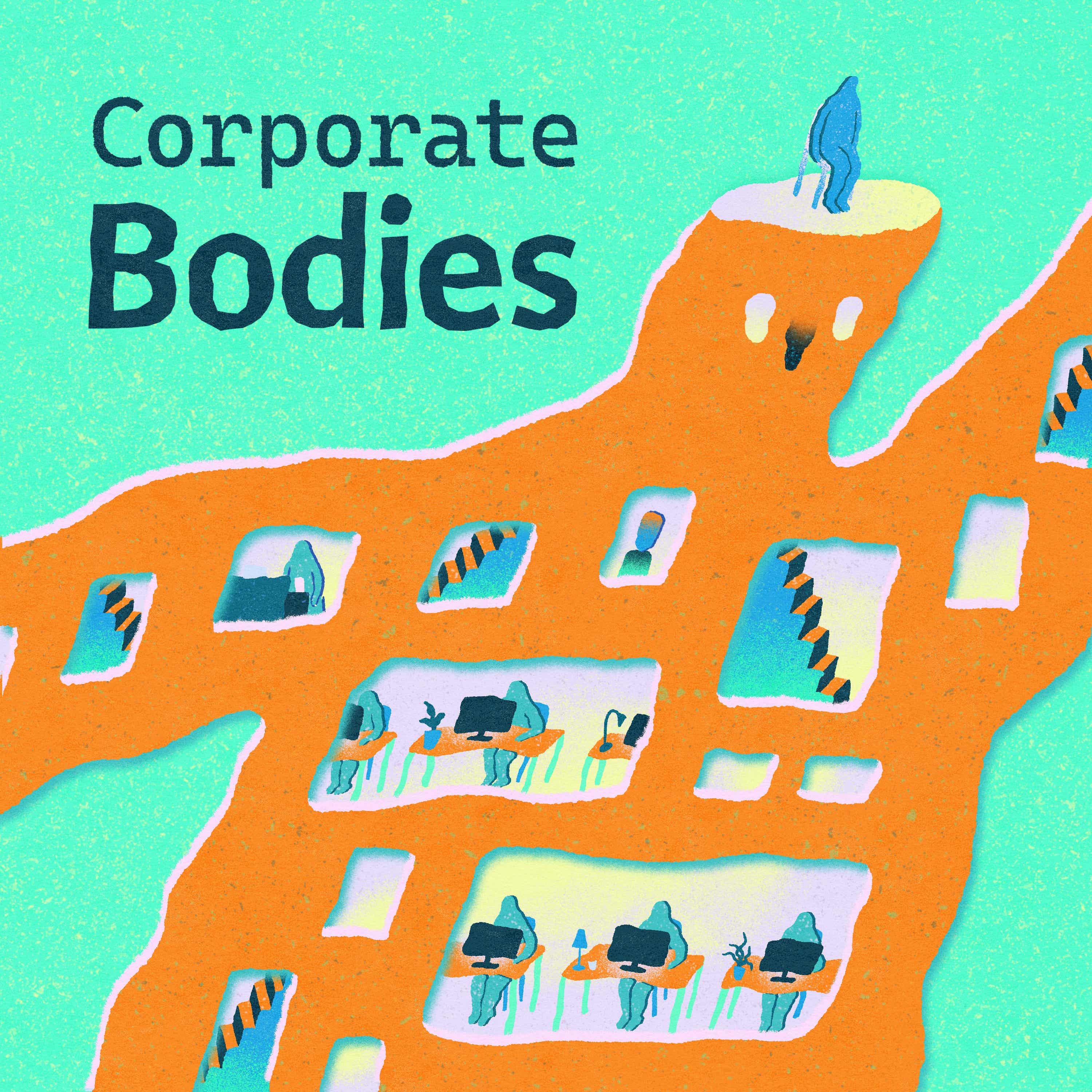Corporate Bodies

Corporate Bodies
Podcast Description
Corporate Bodies asks: why are organisations so weird? And what could we do to make them better?
After all, most of us have worked in companies at some point in our lives and know one thing for sure: working life is odd. The dynamics are messy, the hierarchies are often unjust, and when things go wrong, people start acting very strangely indeed.
Hosts Kate Swade and Mark Walton – the co-creators of Shared Assets – talk to people with a range of perspectives on organisational weirdness, providing practical examples of how we can make this relationship between people and organisations better.
Join us on the journey as we turn and face the strange! corporatebodies.substack.com
Podcast Insights
Content Themes
The podcast delves into topics related to organizational development, historical conceptions of corporate structures, and the impact of legal frameworks on workplace culture, with specific episodes addressing the original sins of companies, such as incorporation and limited liability, by featuring conversations with experts and practitioners who share their unique perspectives.

Corporate Bodies asks: why are organisations so weird? And what could we do to make them better?
After all, most of us have worked in companies at some point in our lives and know one thing for sure: working life is odd. The dynamics are messy, the hierarchies are often unjust, and when things go wrong, people start acting very strangely indeed.
Hosts Kate Swade and Mark Walton – the co-creators of Shared Assets – talk to people with a range of perspectives on organisational weirdness, providing practical examples of how we can make this relationship between people and organisations better.
Join us on the journey as we turn and face the strange!
Join Mark and Kate as they look back over the last ten episodes of Corporate Bodies and talk about what they’ve learned. They particularly talk about how their thinking about legal personhood and the other “original sins” of incorporation has changed. They talk about how organisations might change if we conceptualise them as ecosystems that need tending rather than people that need animating, and other day-to-day practices we might use to change how we approach work.
They also consider what the next step for the Corporate Bodies project might be – and are looking for funders, supporters, and fellow travellers as they explore next steps. Should they examine organisational weirdness in bigger organisations? Uncover more links between work and intimate relationships? Maybe think about more structural or legalistic changes to corporate structures? Let them know what you think by emailing [email protected] or dropping a voicenote to www.speakpipe.com/corporatebodies
Resources:
The article accompanying the episode is here.
* You can see all the podcast episodes we refer to here
* Find more on the original sins here: incorporation, limited liability, legal personhood and employment contracting
* Annette Dhami and her team’s work on Beyond the Rules at Dark Matter Labs – more here, or a great overview here
* Esther Perel’s “How’s Work” podcast
Follow us: at
… or wherever you get your podcasts.
Email us: at [email protected]
Presenters:
Kate Swade (she/her), independent organisational development and governance consultant
Mark Walton (he/him), Founder and Director, Shared Assets
Editor: Katie Revell (she/her)
Artwork: Hanna Norberg-Williams (they/them)
Supporters:
The series is supported by the Centre for the Understanding of Sustainable Prosperity (CUSP), which is a cutting edge research organisation based at the University of Surrey. CUSP explores the question: What does prosperity mean in a world of environmental, social, and economic limits? For more details, visit cusp.ac.uk.
This is a public episode. If you would like to discuss this with other subscribers or get access to bonus episodes, visit corporatebodies.substack.com

Disclaimer
This podcast’s information is provided for general reference and was obtained from publicly accessible sources. The Podcast Collaborative neither produces nor verifies the content, accuracy, or suitability of this podcast. Views and opinions belong solely to the podcast creators and guests.
For a complete disclaimer, please see our Full Disclaimer on the archive page. The Podcast Collaborative bears no responsibility for the podcast’s themes, language, or overall content. Listener discretion is advised. Read our Terms of Use and Privacy Policy for more details.